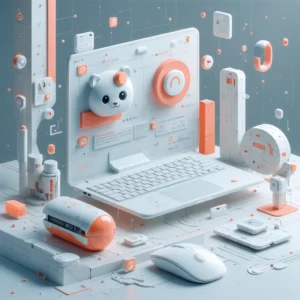
Overview of the Incident
Samsung Electronics recently faced a significant challenge following a problematic software update that adversely affected some of its 2024 soundbar models. The error, described as a “software update error” by Jim Kiczek, the head of audio at Samsung Electronics America, led to certain units becoming nonfunctional — colloquially described as being “bricked.” This incident has substantial implications not only for product reliability and customer trust but also for Samsung’s reputation in the competitive audio market.
Detailed Examination of the Issue
Background Context
Over the past year, Samsung has continuously pushed software updates to enhance its products. In this instance, however, an update intended to improve performance unexpectedly introduced glitches that rendered affected soundbars unusable. The rapid confirmation of these issues was crucial for mitigating potential damages.
Technical Analysis
From a technical perspective, the update error appears to have disrupted the firmware process within the devices. This section outlines key technical elements that contributed to the failure:
- Firmware Integration: The new update was designed to work seamlessly with pre-existing firmware modules. However, unexpected incompatibilities were discovered during real-world application.
- System Stability: The update was meant to enhance system stability and overall audio processing capabilities, but it instead resulted in system lock-ups and complete device failures.
- Error Propagation: Once the error occurred, it propagated through the system, ultimately causing permanent damage (bricking) of the soundbars.
This error showcases the delicate balance required in modern firmware updates and the potential consequences when integration tests fall short.
Business Impact and Response Strategy
Corporate Impact
The error has broader business implications:
- Customer Trust: Affected users are experiencing frustration, potentially diminishing future brand loyalty.
- Market Position: Competitor brands may seek to capitalize on this lapse in quality control, prompting a shift in market dynamics.
- Financial Considerations: Immediate and long-term financial impacts are anticipated, particularly concerning repair costs and potential compensation claims.
The broader challenges emphasize the importance of rigorous update protocols and swift remedial actions.
Response and Remediation
Samsung’s leadership acted decisively to address the situation. The company has implemented the following measures:
- Free Repairs: All affected soundbars, regardless of their service history, will be repaired free of charge. This decision comes directly from Samsung’s commitment to customer satisfaction.
- Enhanced Quality Assurance: Steps are underway to improve pre-release testing of future software updates to avoid similar incidents.
- Transparent Communication: Samsung is prioritizing open dialogue with its customers. Regular updates and clear instructions are being provided through official channels.
These steps not only serve to regain consumer confidence but are also indicative of a broader strategic commitment to quality and reliability.
Strategies for Future Prevention
Strengthening Software Update Protocols
To mitigate similar risks in the future, several strategic measures are being put forward:
| Step | Description | Expected Outcome |
|---|---|---|
| Rigorous Testing | Implementing more comprehensive beta testing phases on diverse devices before public release. | Reduce software errors and compatibility issues. |
| Enhanced Feedback Mechanisms | Establishing direct feedback loops with users to quickly identify and resolve emerging issues. | Faster error identification and resolution. |
| Software Rollback Capabilities | Integrating robust rollback systems to allow users to revert to previous stable versions if anomalies occur. | Minimize downtime and disruption for the end user. |
The table above summarizes critical steps that are expected to improve future software update safety and overall user experience.
Long-Term Corporate Strategy
In addition to technical measures, Samsung is adopting broader corporate strategies to ensure long-term resilience:
- Investing in R&D: Increased investment in research and development to anticipate software and hardware interoperability challenges.
- Customer-Centric Innovations: Focusing on innovative features that enhance user experience while ensuring stability and reliability.
- Enhanced Training: Offering specialized training programs for development teams to emphasize quality control and end-user impact.
These strategies will not only address the current issue but also strengthen Samsung’s overall market position in the competitive consumer electronics landscape.
Conclusion
Samsung’s acknowledgment of the software update error and its commitment to providing free repairs underscore the company’s dedication to customer satisfaction and quality assurance. Through detailed technical investigation and swift remedial action, Samsung demonstrates that even industry-leading companies can encounter challenges. The robust response strategy — combining technical rectification with broader business reforms — illustrates a forward-looking approach that prioritizes resilience and transparency. As the market evolves and consumer expectations grow, such incidents serve as important reminders of the need for continuous improvement in product development cycles.
Looking ahead, it is clear that fostering a culture of proactive risk management and agile response will be critical for any company operating at the intersection of hardware and firmware innovation. Samsung’s ongoing focus on refining its update protocols promises to restore customer trust and set a new standard for reliability in the soundbar segment. This incident, while challenging, offers valuable insights into the complexity of integrating software updates across diverse product lines and reinforces the importance of vigilance in technology management.






